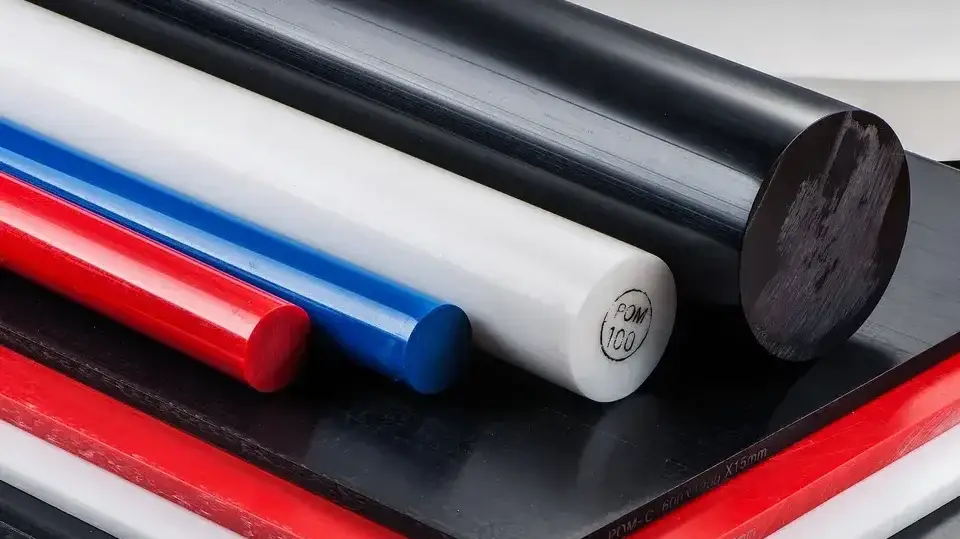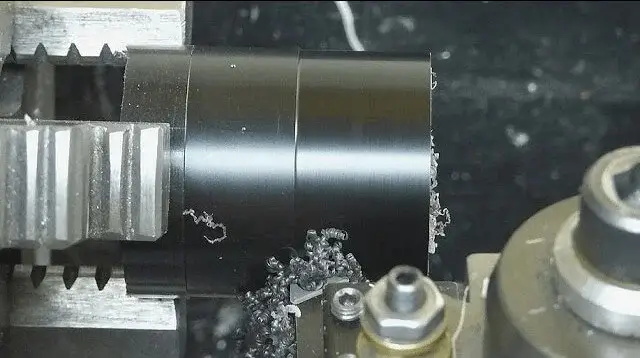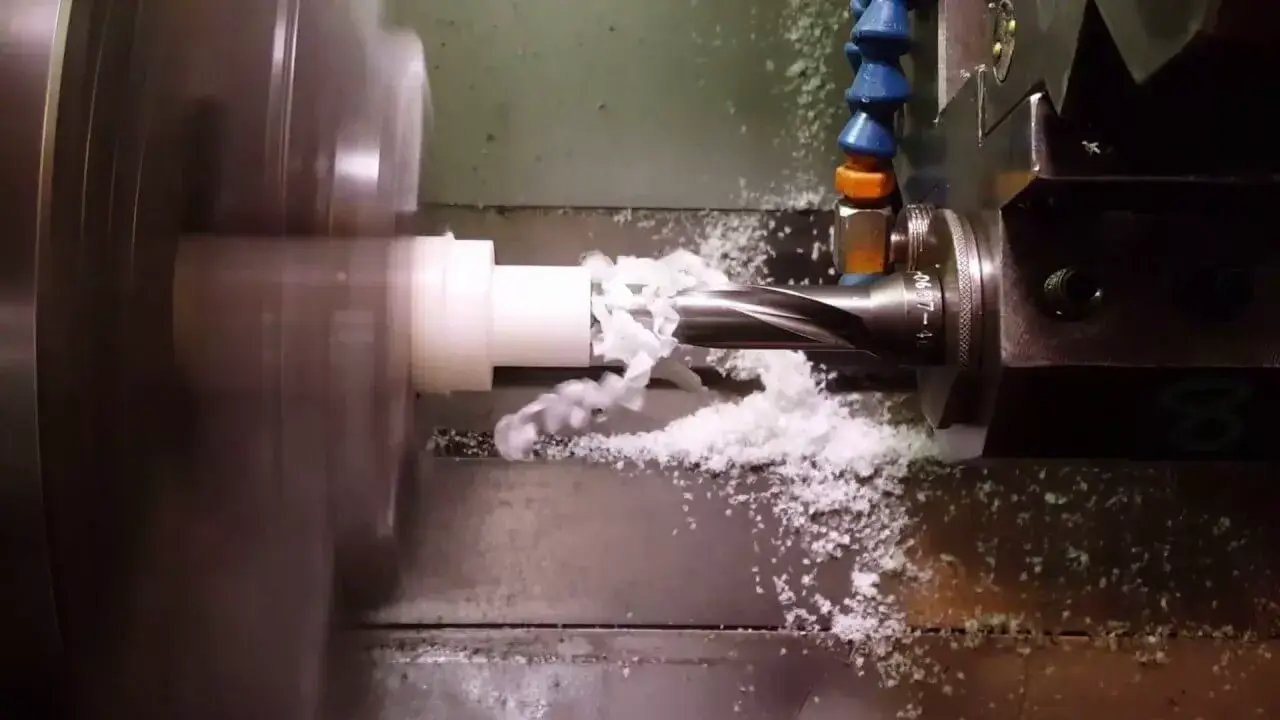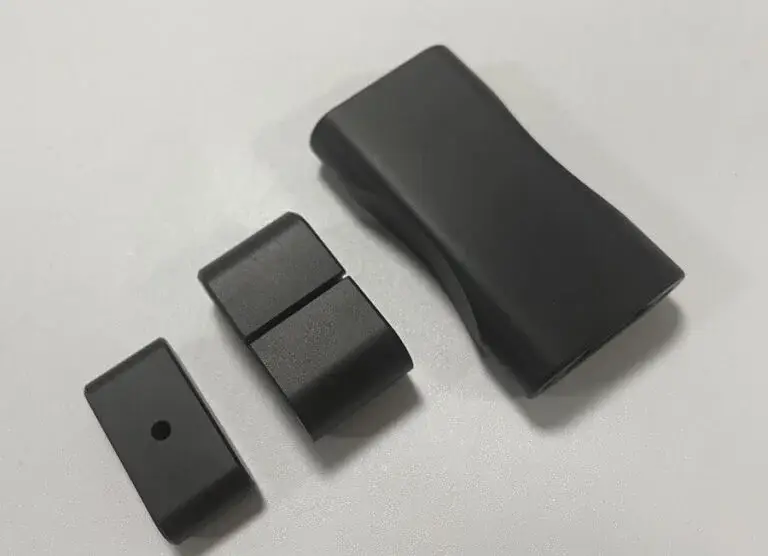Mastering CNC Machining Delrin: In-Depth Guide
Updated: Jan. 25, 2024
Table of Contents
- 1. What is Delrin?
- 2. Delrin VS POM VS Acetal
- 3. CNC machining Delrin parts advantages
- 4. CNC machining Delrin parts limitations
- 5. CNC machining Delrin parts applications
- 6. CNC machining material Delrin grades
- 7. Delrin machining capability
- 8. CNC machining Delrin tolerance
- 9. Delrin machined parts surface finish
- 10. Cost saving tips for designing and machining Delrin parts
- 11. Conclusion
Polyoxymethylene (POM), commonly known as Delrin, is a widely utilized plastic in CNC machining, offering a spectrum of outstanding characteristics suitable for mechanical components and various engineering applications.
This article delves deeper into CNC machining Delrin, covering aspects such as Delrin material properties, applications of Delrin, the machining capacity of Delrin with CNC technology, surface finishes achievable for CNC machined parts in Delrin, and practical tips for successful Delrin CNC machining.
1. What is Delrin?
Delrin is a trademarked name for DuPont’s polyformaldehyde products and is commonly used to refer to POM-H type polyformaldehyde. Thus, Delrin is a specific trademark for POM.

2. Delrin VS POM VS Acetal
People may get confused by the names of Delrin, POM, and Acetal. We will explain the differences.
POM is the official name for polyformaldehyde, also known as polyoxymethylene. There are two main types of POM POM-C (paraformaldehyde phenolic resin) and POM-H (paraformaldehyde copolymer).
Acetal is one of the generalized terms for POM and is also used to describe the class of plastics known as paraformaldehyde. Acetal can refer to either type of POM, including POM-C and POM-H.
Thus, POM is the official name while Acetal is a general name. Delrin is DuPont’s POM H trademark.
In practice, we do not specifically emphasize the differences between the three but refer to all plastics in the category of paraformaldehyde.
Read our blog Delrin VS Acetal for more information about their differences.

3. CNC machining Delrin parts advantages
Delrin plastic has many unique advantages which make Delrin as one of the most used plastic materials for rapid prototyping. Below are Delrin material properties.
High Hardness
The hardness of Delrin is usually around 88 HRM. Delrin’s molecular chains are tightly arranged and have excellent rigidity and wear resistance. Therefore, it is suitable for the manufacture of mechanical parts, gears, bearing rings, and other parts that require high hardness.
Excellent rigidity
Delrin has a compact molecular structure and exhibits excellent rigidity. It has good ability to resist deformation when subjected to force. This makes it suitable for the manufacture of mechanical parts that require high precision and structural stability.
Low coefficient of friction
Delrin’s low coefficient of friction helps reduce friction between parts and improve mechanical efficiency. It is widely used in bearings, slides, and other parts that require reduced friction and improved mechanical efficiency.

Excellent wear resistance
The hardness of Delrin gives it excellent abrasion resistance, making it suitable for long periods of high-friction environments. Commonly used in gears, bearings, and other parts that require high wear resistance.
Good chemical resistance
Delrin shows good stability to some solvents and chemicals and is not easy to corrode. Suitable for some special environments, such as parts in the chemical industry.
Dimensional stability
Delrin shows good dimensional stability over a wide temperature range and is not easily affected by temperature changes. It is suitable for precision mechanical parts that require high dimensional accuracy.
Good insulating properties
Delrin has good insulating properties and is suitable for electronic and electrical applications. It is widely used in the manufacture of electrical components, insulating parts, etc.

High fatigue resistance
High fatigue resistance allows Delrin plastic to excel in long-term use and frequent movement of mechanical parts. It is suitable for parts that need to withstand frequent movement and deformation.
High abrasion resistance
High abrasion resistance enables Delrin to maintain a long life in high-friction environments. Suitable for parts in high friction environments such as gears and bearings.
Low Moisture Absorption
Low moisture absorption means that Delrin is relatively insensitive to changes in humidity. It is suitable for parts in humid environments where stable performance needs to be maintained.
Good weather ability
Good weather ability makes Delrin relatively insensitive to sunlight and climate change. Suitable for parts in outdoor environments, such as automotive parts.

High tensile strength
High tensile strength allows Delrin to withstand large tensile forces. It is suitable for structural parts that require high tensile strength.
Oilability
Good resistance to some lubricants, which aids operation in lubricated environments. Suitable for mechanical parts that need to operate in a lubricated environment.
High melting point
A high melting point allows Delrin to maintain good performance in high-temperature environments. Suitable for applications requiring high-temperature stability, such as engine parts.
Dimensional Accuracy
CNC machining Delrin performs well in the manufacture of precision parts and helps maintain dimensional accuracy. Ideal for engineering parts that require high precision.
Low moisture absorption
Low hygroscopicity means that it is relatively insensitive to changes in humidity, which helps maintain stable performance in different environments. Ideal for parts that require stable performance in humid environments.

4. CNC machining Delrin parts limitations
Though Delrin plastic has many advantages, it still has some limitations.
Bad adhesion
Delrin has good chemical resistance, and it is not easy to bond because it does not respond well to adhesives. Delrin belongs to POM-C, which is an easier bond than POM-H.
Flammability
Delrin can burn and will not self-extinguish until the oxygen disappears. To extinguish Delrin fires, Class A fire extinguishers are needed.
Heat sensitivity
Special attention is needed to pay attention to the heat during CNC machining Delrin because it is sensitive to high temperatures, which can cause deformation.

5. CNC machining Delrin parts applications
Delrin is a popular engineering thermoplastic widely used in CNC machining, favored primarily for its superior material properties and ease of machining.
Delrin has excellent machinability with good dimensional stability for precision cutting. It has high strength, toughness and impact resistance, making Delrin suitable for engineering applications.
Delrin is corrosion resistant to chemicals such as solvents, gasoline, alcohols and moisture.
With its excellent creep resistance, Delrin parts are suitable for automotive parts that require long service life. Its electrical insulating properties that have led to a wide range of consumer electronics applications .
Delrin’s natural high lubricity, ideal for low-friction make is suiatable for applications where parts need to be in contact with other plastic parts.
6. CNC machining material Delrin grades
Both POM C and POM H are suitable for CNC machining, although POM C is easier to order.
POM C(Delrin) has better strength, hardness, and rigidity, while maintaining a certain degree of toughness, and is suitable for general mechanical parts, such as gears, bearings, sliders, etc. POM H performs better at high temperatures, with better thermal stability and abrasion resistance, and is suitable for work in high-temperature environments, such as engine parts.
There are different grades of CNC machining Delrin, standard POM, toughened POM, low friction POM, glass-filled POM(Reinforced POM), and UV stabilized POM.
At ECOREPRAP, we provide Delrin, Delrin with glass fibers, and Delrin AF(a combination of 10% to 25% oriented PTFE fluorocarbon fibers) for CNC machining.
7. Delrin machining capability
We usually express how easy it is to machine plastics on a scale of 1 to 10, with 1 being the easiest. Delrin’s machining factor is 1, which means it’s very easy to machine.
Milling
Two flute end mills, face mills, and shell mills with inserts as well as fly cutters can be used. Climb milling is normally recommended to help reduce heat by dissipating it into the chip and it often improves products’ surface finish.
Turning
The contentious chip stream produced when turning and boring many thermoplastics can be handled well using suction nozzles, in this way avoiding the chip wrapping around the chuck, the tool, or the work pieces.
Drilling
High-speed steel twist drills work well, but there will be plenty of heat generated so a cooling liquid shall be used, especially when the hole depths are more than twice the diameter. To improve heat and swarf removal, frequent pull-outs are necessary, especially for deep holes.
Sawing
Band saws, circular saws, or reciprocating saws that have widely spaced teeth to ensure good chip removal can be used. They should also have enough set to minimize the friction between the saw and the work and also to avoid close-in behind the cutting edge, causing excessive heat buildup and even blocking the saw.

8. CNC machining Delrin tolerance
Delrin is temperature sensitive, for large and flat Delrin parts, and for Delrin parts with thin walls, they are susceptible to warp. To avoid this, we usually do an open roughing and then take the material off the machine for a few days before finishing it.
Compared to metal parts, the machining tolerance for thermoplastics is in general considerably larger. As a guideline, for turned or milled Delrin parts, ISO 2768MK can be used as a guide.
9. Delrin machined parts surface finish
There are two surface finishes available for machined Delrin (POM) plastic parts.
As machined finish
As machined surface finish typically leaves a slightly rough or textured surface. The roughness can reach Ra3.2. Delrin parts with as machined finish is suitable for mechanical parts, which increase the friction.
Sandblasting finish
Sandblasting can help to get a uniform surface finish without compromising the dimensional accuracy.


10. Cost saving tips for designing and machining Delrin parts
Design for Delrin
Avoid thin walls and include fillets and ribs where necessary when designing parts for Delrin machining. This will avoid warp. Large Delrin parts are also susceptible to warping.
Avoid sharp internal corners. The radius shall be at least 1mm.
Chamfered edges are always preferred which can provide a smoother transition between the cutting tool and the workpiece. The chamfered edges design will also avoid chipping the edges.
Sharp V threads design shall be avoided. Threads with a rounded root design shall be applied whenever possible.
Machining forces/clamping
Machining forces are lower for engineering plastics than for metals and the former deforms more easily if clamped too tightly, clamping pressures shall be reduced.
Coolants
Delrin is temperature sensitive, especially over 121°C. Apart from drilling and parting, coolants are not typically necessary for CNC machining Delrin. Keeping the cutting area cool generally helps improve the surface finish and tolerance.
Air-based coolants perform better than liquid coolants because it will help remove the chips. When cooling liquid is required, water soluble oil type generally do well. The most suitable coolants for Delrin CNC machining are pure water or compressed air.
Tools
HSS tools work well with CNC machining Delrin. However, tungsten carbide, ceramic or PCD tooling is preferred for long production runs. Always keep the tool well sharpened.

11. Conclusion
Delrin is commonly used in CNC machining because of its properties including high hardness, excellent rigidity, low coefficient, excellent wear resistance, and good machinability.
The Delrin CNC machining for large parts may face warping issues. With a professional CNC workshop, qualified CNC machined Delrin parts can be produced in large volumes.